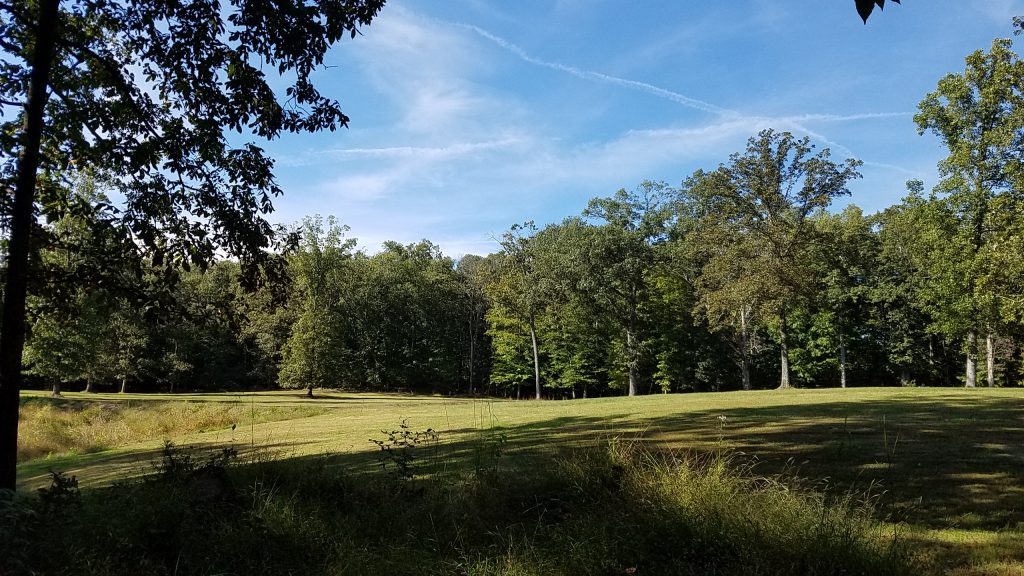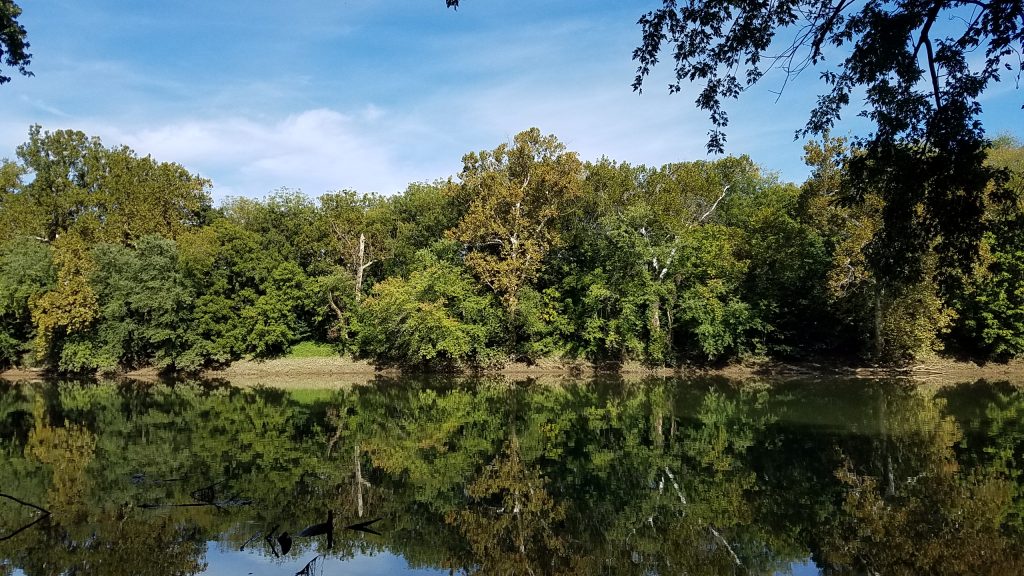Under Fire at Ball’s Bluff: “You Have Established Your Reputation”
“We crossed the river…under command of Colonel Lee, in all one hundred men, in a whale boat that would carry sixteen, and two small boats holding five and four respectively. I went over first, and found a steep bank one hundred and fifty feet high, with thick wood on it. There was not room enough to form ten men, and the banks were so slippery that you could not stand,” wrote Captain William Francis Bartlett describing his arrival at Ball’s Bluff. Commanding Company I of the 20th Massachusetts, Bartlett and his men had not been under fire before, but as the scouting probe of other regiments ahead of them turned into a real battle, they would be tested to their limits.
The young captain doubted the mission early on, especially after climbing up steep “precipice and form[ing] on the open space above.” While the 15th Massachusetts advanced inland along a cart road, the 20th Massachusetts had to wait “to support them and cover their retreat.” Bartlett explained to his company that if the 15th Massachusetts “came running down the road, wait till they had passed, and then cover the retreat.” Bartlett felt “dubious” about the whole plan, a feeling which the decision-making officers should have felt as well. Sending a raiding or probing regiment into the unknown when the terrain and enemy forces in the area were undetermined, particularly when there was no good route for retreat, seemed risky. Left with no other options, the 20th Massachusetts sent out scouts…and waited.

Suddenly the sunrise stillness shattered as “three or four shots” rang out on Bartlett’s right. His first sergeant soon appeared, dripping blood and nearly fainting. The captain stayed calm, even though this was likely the first combat blood he had seen; “we tied a handkerchief around his arm and sent him down to the river.” Later, Bartlett wrote about his sadness at losing his “invaluable” first sergeant and expressed hope that he would recover.
By mid-morning, volleys of gunfire sounded from the direction the 15th Massachusetts had marched. Bartlett’s company advanced to form a skirmish line, in case they needed to cover a retreat. He ordered his men to lie down, and about a half-hour later, “found that nearly all my skirmishers lying down had taken the opportunity to go to sleep, poor fellows. I couldn’t bear to wake them until the first volley of musketry was heard from the woods near us. It shows that the boys were either indifferent to danger, or were worn out with fatigue, to go to sleep on the field, where balls were occasionally dropping in.”
Meanwhile, the 15th Massachusetts retreated, followed by the Confederates, and Colonel Edward Baker arrived with Union reinforcements. Though some soldiers in Company I of the 20th Massachusetts slept through their first experience under fire, they were awake and fighting when the actual Confederate attacks aimed for their position.
According to Bartlett:
“Well the first volley came and the balls flew like hail. You can see from our position on the plan that we were exposed to their full fire. The whizzing of balls was a new sensation. I had read so much about being under fire and flying bullets that I was curious to experience it. I had a fair chance. An old German soldier told me that he had been in a good many battles, but that he never saw such a concentrated fire before. They fired beautifully, too, their balls all coming low, within from one to four feet of the ground. The men now began to drop around me; most of them were lying down in the first of it, being ordered to keep in reserve. Those that were lying down, if they lifted their foot or head it was struck. One poor fellow near me was struck in the hip while lying flat, and rose to go to the rear, when another struck him on the head, and knocked him over. I felt that if I was going to be hit, I should be, whether I stood up or lay down, so I stood up and walked around among the mem, stepping over them and talking to them in a joking way, to take away their thoughts from the bullets, and keep them more self-possessed. I was surprised at first at my own coolness. I never felt better, although I expected of course that I should feel the lead every second, and I was wondering where it would take me.”
Lieutenant Henry Abbott (in Bartlett’s Company) later wrote:
“Though we were lying down, our men were shot on every side of us. And yet Capt. Bartlett, though standing up nearly all the time, wasn’t so much as scratched. The fight was made up of charges. You would see our capts. rush out in front & cry forward & their companies would follow them at full speed under a tremendous fire till they were obliged to fall ack. And this was repeated over & over during the 4 hours fight. Our company made the last charge. The general [Baker] was killed…nobody knew who was the senior in command & Col. Lee ordered a retreat. But we were determined to have one more shot. So Frank [Bartlett] ordered a charge & we rushed along, followed by all our men without an exception… So we charged across the field about half way, when we saw th enemy in full sight. They had just come out of the wood & halted at our advance… For a moment there was a pause. And then, simultaneously, we fired & and there came a murderous discharge from the full rebel force. Of course we retreated, but not a man when fast than a walk.”

With the Union lines in collapse and troops tumbling down the steep bluffs toward the edge of the Potomac River, Bartlett found his regimental colonel refusing to leave and believing it would be best to stay and be captured. Eventually, Bartlett and another officer dragged the older man down to the riverbank, but the colonel was out of command, leaving the retreat and the survival of the companies to the junior officers. While other companies and regiments plunged into the river and tried to swim to safely while the Confederates fired from the top of the bluff, Bartlett took his survivors and divided them between those who could swim and those who could not. He entrusted a message to one of the men, telling him to go to Boston to the Bartlett family home and tell them that their son was a prisoner, indicating Bartlett did not believe he would get out of the fight.
Then, with about 80 men — the majority from other regiments— Bartlett headed upriver, looking for a boat. He found an African American man, probably enslaved, and persuaded him to tell the location of a sunken boat. When they pulled up the vessel, Bartlett discovered that it could only hold five men at a time. Many of the soldiers with him declared that they preferred to sleep the night as free men and then surrender the next morning. However, Bartlett had other ideas and cover of darkness helped.
“I thought, though, that if I only got one load of five over, it would be worth trying; so we got it down to the river and began the transportation, expecting every minute to be discovered and fired at by the rebels. When the boat was put into the water, the whole crowd made a rush for it. had to use a little persuasion by stepping in front of it, drew my pistol (for the first time this afternoon) , and swore to God that I would shoot the first man who moved without my order. It was the only thing that saved them. They were obedient and submissive, and avoided being shot by me or taken prisoners by the enemy. I selected five men of my own company and sent them across first, with a man to bring back the boat. So, by degrees, I got those of the Twentieth, next those of the Fifteenth…and lastly those of the Tammany and California regiments. I sent Lieutenant Whittier over in the second load, to look out for the men as they came over. It was a tedious job. At last I went over with Tremlett and Little [nickname for Henry Abbott], and was once more back on the island. We thus saved eighty men and three officers from being taken prisoners.”
If Bartlett had surprised himself by his ability to command and resourcefulness, he had another surprise waiting when he reunited with his regiment. Due to capture and wounds, all the higher ranking officers of the 20th Massachusetts were unable to command, leaving him in charge of the regiment. The following evening, Bartlett thought “it best to have a dress parade as usual, both to let the men see that everything was not broken up, and to cheer them with the music. It had a very good effect.” He was relieved when another regimental officer who had been at Edward’s Ferry returned and was satisfied to turn over command to the superior.
Still, due to his brief time as regimental commander at the camp, Bartlett penned a congratulatory order to the unit, praising them for their first experience under fire, saying, “Your courage and bravery under a galling fire for hours was only equaled by your coolness and steadiness throughout. You have established your reputation for bravery, and gained honor, though you lost the victory.” The regiment also lost heavy in casualties, and according to Bartlett, only nine officers out of twenty-two returned safely while 146 casualties fell, over one third of the total engaged.
The 20th Massachusetts and Captain Bartlett had run the gauntlet of their first combat and their difficulties were extraordinary. Not only did they have their first experience under enemy fire, but then they had a harrowing escape and a deep river to navigate. The 20th established itself with a determined reputation and would be a core regiment in the future of the Army of the Potomac. As for Bartlett, his days as a captain were numbered…he would eventually rise to the rank of major general of volunteers by the end of the war, despite suffering numerous wounds and illness during his service.
Bartlett was correct in his prediction to his family after the Battle of Ball’s Bluff. Having gone through a fierce battle initiation, “The next time the Twentieth is engaged she will leave a mark that will not be lost sight of in history.”
Sources:
Francis W. Palfrey, Memoir of William Francis Bartlett, (Boston: The Riverside Press, 1879).
Henry Abbott. Edited by Robert Garth Scott. Fallen Leaves: The Civil War Letters of Major Henry Livermore Abbott. (Kent: The Kent State University Press, 1991.)


1 Response to Under Fire at Ball’s Bluff: “You Have Established Your Reputation”